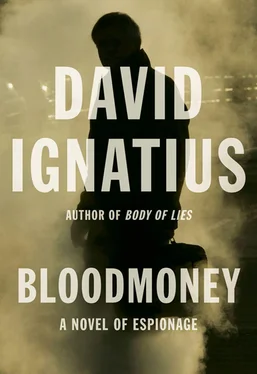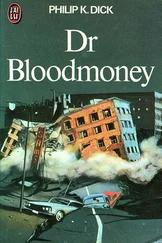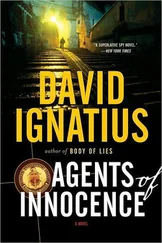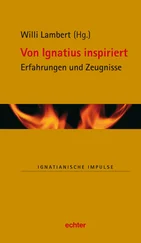David Ignatius - Bloodmoney
Здесь есть возможность читать онлайн «David Ignatius - Bloodmoney» весь текст электронной книги совершенно бесплатно (целиком полную версию без сокращений). В некоторых случаях можно слушать аудио, скачать через торрент в формате fb2 и присутствует краткое содержание. Жанр: Шпионский детектив, на английском языке. Описание произведения, (предисловие) а так же отзывы посетителей доступны на портале библиотеки ЛибКат.
- Название:Bloodmoney
- Автор:
- Жанр:
- Год:неизвестен
- ISBN:нет данных
- Рейтинг книги:4 / 5. Голосов: 1
-
Избранное:Добавить в избранное
- Отзывы:
-
Ваша оценка:
- 80
- 1
- 2
- 3
- 4
- 5
Bloodmoney: краткое содержание, описание и аннотация
Предлагаем к чтению аннотацию, описание, краткое содержание или предисловие (зависит от того, что написал сам автор книги «Bloodmoney»). Если вы не нашли необходимую информацию о книге — напишите в комментариях, мы постараемся отыскать её.
Bloodmoney — читать онлайн бесплатно полную книгу (весь текст) целиком
Ниже представлен текст книги, разбитый по страницам. Система сохранения места последней прочитанной страницы, позволяет с удобством читать онлайн бесплатно книгу «Bloodmoney», без необходимости каждый раз заново искать на чём Вы остановились. Поставьте закладку, и сможете в любой момент перейти на страницу, на которой закончили чтение.
Интервал:
Закладка:
“Suit yourself,” said Gertz. He ordered a gin martini and began popping pistachio nuts into his mouth from the silver-plated dish.
“Nice spot, the Dorchester. A rich guy must have set you up here. But I guess he isn’t so rich anymore. From what I’m hearing, his hedge fund is about to go bankrupt. Let’s see how nice people are to him now that he’s an ex-rich guy trying to stay out of prison.”
“It won’t work, Jeff. Maybe you think you can hang it all on him, but it’s going to come out.”
“It doesn’t matter to me either way. My fingerprints aren’t on anything. I’m invisible. But you need to be careful, sweetie. You’re still a target. And a very bad person is coming your way. That’s why I tracked you down. I wanted to give you a warning. He knows where you are. He has all your aliases.”
“The Pakistani? We’re shutting him down. Mr. Hoffman told me so. We’re rolling up him and his people. His network wouldn’t exist, as near as I can tell, without your help.”
Gertz laughed and knocked the bar with his fist.
“That’s rich. ‘Mr. Hoffman told me so.’ I love that.”
She was angry now, at his arrogance and the dismissive tone. She had forgotten how compact and self-assured Gertz was.
“How could you do it, Jeff? This man was your ‘consultant.’ You let him see into your operations. How could you be so stupid?”
Gertz ran his index finger along the edge of his glass until it began to hum. He took a swig, and then another.
“What do you know?” he said. “Nothing.”
“I know his name. Omar al-Wazir. I know you used him in 2005, and that you stayed in contact with him. I know…” She paused, trying to think of the word that would sting him the most. “I know that you are a fuckup.”
Gertz muttered a curse of his own in response, but that wasn’t enough. He was a man whose inner balance required that he be needed and respected by others. That was his vulnerability. He had to prove he was right.
“You don’t get it. This isn’t ‘Tradecraft for Tots’ like they teach at the Farm. This is the real world. He was my asset. He helped me pick my targets for recruitment. He knew the pressure points in Pakistan. He helped me move money to them. He helped set up the network. The operation wouldn’t have been possible without him. He did a lot of good. It turned out he had flipped. He became dangerous. That wasn’t my fault.”
“Are you crazy? You got your own people killed, Jeff. How could there be anything worse than that?”
He took a sip of his martini, liquid ice on his tongue. He shook his head.
“I feel sorry for you. You’re a sucker, and you’re about to walk off a cliff.”
He stood up from his stool and dropped twenty pounds on the mirrored counter of the bar.
She stared at him, her eyes angry and defiant, but with just a flicker of uncertainty.
“Piece of advice,” he said. “Parting shot. Don’t trust Cyril Hoffman. Who do you think told me about the Pakistani professor in the first place? How do you think I know he’s on his way to London? From Hoffman, that’s how. You’re getting played.”
He turned and walked away, back toward the hotel lobby.
“You’re lying,” she muttered. But she wasn’t sure that she knew where the truth lay anymore. Sometimes it was indeterminate; the closer you got to it, the more you disrupted its pieces, so that it changed its shape and position. The truth wasn’t straight. It had bends and curves.
41
How do wars end? That was the question that had vexed Omar al-Wazir since he was a boy, when the time of the big wars was beginning in his part of the world. He could see well enough how they started, but how did they ever stop? He thought about it now as he sat in an air terminal waiting to board his Pakistan Airlines flight to London. It was a jumbo jet, and the waiting room was hot and crowded with Pakistanis of every age, old grandmas off to see their children in Manchester and young families going home to Neasden or Wandsworth, all tired and sweaty in the gritty seats of the boarding lounge.
The professor’s face was clean-shaven, as always. He was wearing a gray suit of light summer wool and a white shirt. His glasses rested on the top of his big nose. It was the face of a doctor of computer science, a modern man, as he always insisted. In the simplicity of his demeanor, there was an invitation to trust. That was why he had been so adept at recruiting others: They wanted to believe that he was their ally; they felt more confident in battle if someone like him was on their side.
A part of the answer to this question of ending wars, the professor thought, was that the fighters on both sides got tired. They were exhausted by battle, bled white from their wounds. They had run out of troops and money, and so it was time to go home. That was what had happened to the Russians, certainly. Their Afghan war ended because the nation was bankrupt, economically and ideologically. A regime fell because of an unwinnable war, just as had been the case in 1917. Other wars ended because of political exhaustion or simply impatience; a nation still had the money and the weapons to fight on, but its will was gone. That was the story of America in Vietnam, the books all said. The war had been lost back home; events on the battlefield were of secondary importance.
But wars that ended in such ways did not bring a good peace; the professor knew that from his study of history. They brought dishonor, shame, a simmering desire for revenge. The Germans had gone from the humiliation of Versailles to the brazen assaults of the Nazis in less than two decades. The start of the second war was contained in the end of the first. That was what people in the professor’s part of the world understood better than more “civilized” people: The victor in war must find a way to salve the dignity of the vanquished; otherwise, there would just be another war.
An old grandfather sitting next to the professor in the waiting lounge had fallen asleep. He was snoring loudly, and some of the children nearby were pointing at him and laughing. It was undignified. The professor gently nudged the old man until he was awake and the loud nasal percussion ceased. He went back to his reverie about war and peace, which helped him to forget about the unpleasantness of the airport waiting room.
The tribal code for restoring harmony was called nanawatay in the Pashto language. That was how wars ended among honorable men. The vanquished party would go to the house of the victor, into the very heart of his enemy, and look that man in the eye and request forgiveness and peace. The defeated man was seeking asylum, and the victor could not but grant him this request. To refuse would be dishonorable and unmanly. When a man is asked to be generous, he can unburden himself of his rage toward his enemy. He can be patient in forgiveness and let go of the past. The defeated man will have brought a buffalo, or some lambs and goats for slaughter. In this gift is his dignity. A feast is held. The war is over.
There were shouts in the terminal suddenly, and a frantic rush. They were calling the flight now, and people were crowding toward the door, pushing and shoving. The professor sat where he was. He had his ticket in his hand, with the seat number printed on it clearly. The plane would not leave without him. It was a sign of the immaturity of people in the East to jostle like this every time there was a queue. A Pashtun man would never do this. Better to miss the flight than to act like a woman.
The professor thought again of his problem: In the old days, it was said, the defeated man would come to the house of the victor with grass in his mouth and a rope around his neck as a sign of his humbleness. He was as meek before the victor as an animal of the field. Other times, the supplicant would attend a funeral for someone in his enemy’s family. He would come to his rival’s village and somberly enter his house, to share the grief. And once inside the house, he could ask for asylum and forgiveness. It was unthinkable to refuse such a plea; only a coward would do so.
Читать дальшеИнтервал:
Закладка:
Похожие книги на «Bloodmoney»
Представляем Вашему вниманию похожие книги на «Bloodmoney» списком для выбора. Мы отобрали схожую по названию и смыслу литературу в надежде предоставить читателям больше вариантов отыскать новые, интересные, ещё непрочитанные произведения.
Обсуждение, отзывы о книге «Bloodmoney» и просто собственные мнения читателей. Оставьте ваши комментарии, напишите, что Вы думаете о произведении, его смысле или главных героях. Укажите что конкретно понравилось, а что нет, и почему Вы так считаете.












